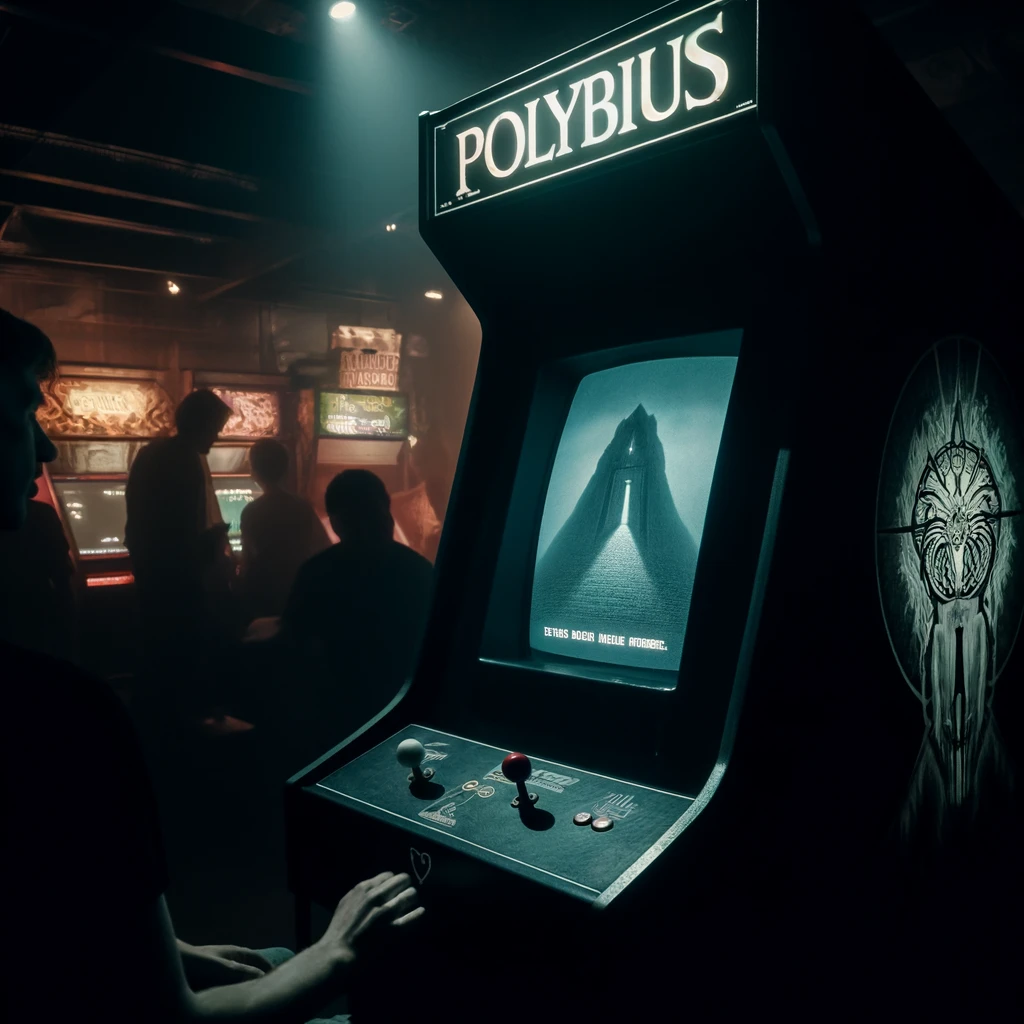The Polybius urban legend is a fascinating and mysterious tale in the world of video games and arcades. It revolves around a supposedly sinister arcade game that emerged in the early 1980s in Portland, Oregon. The legend has captivated the imagination of gamers, conspiracy theorists, and urban legend enthusiasts alike.
The Legend
Polybius is described as an arcade game that appeared briefly in several arcades in Portland in 1981. The game was said to be highly addictive, with players experiencing intense psychological and physical effects, including amnesia, insomnia, night terrors, and even hallucinations. Some reports even claim that players committed suicide after playing the game.
The Cabinets
The game’s cabinets were allegedly plain, black machines with no distinct branding apart from the title “Polybius.” The game was said to feature vector graphics and puzzle elements, though descriptions of the gameplay vary. Arcade owners reportedly noticed strange behavior in players and unusual maintenance visits from men in black.
The Government Connection
The most intriguing part of the Polybius legend is the supposed involvement of the government. According to the story, the game was a secret government experiment to test behavior modification and psychological manipulation techniques. Men in black were said to collect data from the machines and observe the effects on players.
Origins and Spread
The Polybius legend began circulating in the early 2000s, primarily through internet forums and websites dedicated to video game history and urban legends. The first known reference to Polybius appeared on the coinop.org website in 1998, where it was listed as an obscure arcade game with a cryptic description. Since then, the story has been embellished and expanded upon, with various anecdotes and theories adding to its mystique.
Debunking the Myth
Despite its popularity, there is no concrete evidence that Polybius ever existed. Extensive research by video game historians and enthusiasts has turned up no verifiable records of the game or its cabinets. Some believe the legend originated as a hoax or a combination of various urban myths and real-life incidents involving video game addiction and government experiments, such as the well-documented “MKUltra” program.
Cultural Impact
The Polybius legend has had a significant impact on popular culture, inspiring numerous references in media:
- Video Games: Polybius has been referenced and parodied in various video games, often as a hidden Easter egg or as part of the storyline.
- Television and Films: The legend has been featured in shows like “The Simpsons,” “Loki,” and “Cloak & Dagger,” and has inspired documentaries and mockumentaries exploring its origins.
- Literature and Art: The myth has been explored in novels, comics, and artworks, further cementing its place in urban legend lore.

While the Polybius urban legend remains just that—a legend—it continues to fascinate and intrigue those who encounter it. The story’s blend of video game culture, government conspiracy, and psychological horror creates a compelling narrative that blurs the line between reality and fiction.
